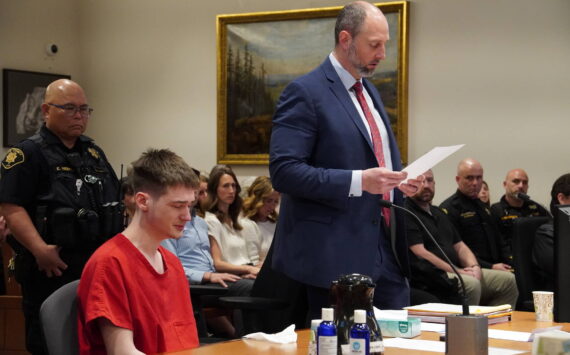The players in Washington are paid to represent their constituents. Lawmakers work for the folks back home, and most lobbyists work for the highest bidders. The financial industry’s lobbyists—looking out for their clients’ best interests—pushed for the deregulation of lending practices and convinced lawmakers to deliver the changes.They sold this bill of goods by making the case for less government intrusion. The nature of risk, and the way it leads to prudent lending, was supposed to take care of things. All the while, industry lobbyists heaped plenty of money on lawmakers and the respective Republican and Democratic campaign organizations.The current financial meltdown is a product of pay-to-play politics in the halls of power. Give enough money, throw enough fundraisers, and you’ll get noticed in the capital. If you do get noticed, you’ll get access. If you get access, you can change laws to benefit yourself or—just as good—receive public funds.From the halls of congress and the White House to state legislatures and down to Main Street USA: Get noticed, get connected, get public money. It’s a public official’s duty to look out for his or her constituents, sometimes in the form of sending jobs and federal funds back home. They are not, however, to be bought, which is exactly how we got to where we are today. But before we throw all stigmatized buzzwords out the window, let’s preserve one: earmarks. The federal government can be a good source of money. And it’s usually seen as good news when a lawmaker brings public funds to their constituents. But bringing money home in the form of federal earmarks is suddenly a faux pas. I don’t buy the rhetoric. Why shouldn’t local people see a tangible benefit from their federal tax dollars? Indeed, the Bridge to Nowhere is a symbol of governmental excess spending, but let’s not throw out the baby with the bathwater! If the discussion regarding earmarks is rooted in cutting taxes, that’s basically rhetoric to nowhere. The G.W. Bush Republicans with their colossal bailout have expanded government so much that calling for tax cuts is unreasonable. Even if they cut earmark spending, taxes will not go down! Plus, there’s the debt on the Iraq war and other obligations of empire to pay for.We the People, through the actions of our government, are buying one trillion tons of bad debt. Government is now in the business of business. How much will they buy the bad loans for? When will they sell them and how much will they sell them for? These are troubling questions for a system that’s prone to privatize profits and nationalize losses. It only gets worse when you imagine financial industry lobbyists being there to help give the answers.The toothpaste is already out of the tube—we’re nationalizing the lending business. The discussion is now only about choosing which flavor of socialism we want. As of this writing, the Administration is calling for a clean bailout in which hapless investment bankers fall into the state safety net and taxpayers would—hopefully—only be paid back for their loan. Democrats are proposing that taxpayers get equity for the money they’re lending. If taxpayers carry the risk, they need to get their money back and then some.The Bridge to Nowhere may be a symbol of government spending. The 2008 Loan Market Bailout is a towering monument to the bridge from capitalism to socialism.
More Stories From This Author
Man who killed four in Renton crash sentenced to over 17 years in prison
The prosecutor reported that he was traveling at 112 miles per hour when he crashed into the victims.
FEMA denies funds to WA for damage caused by 2024 ‘bomb cyclone’
Gov. Bob Ferguson says federal funds are needed to address $34 million in damage caused by the storm, and that the state will appeal.
SAVE Act could disenfranchise millions of voters
Congressman reports law could cost Washingtonians over $361 million just to register to vote.




